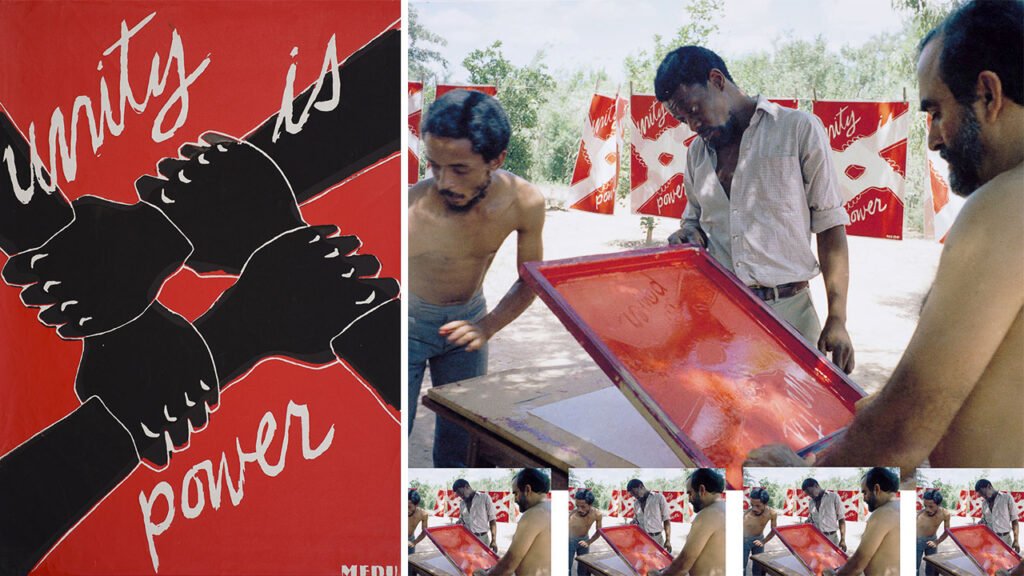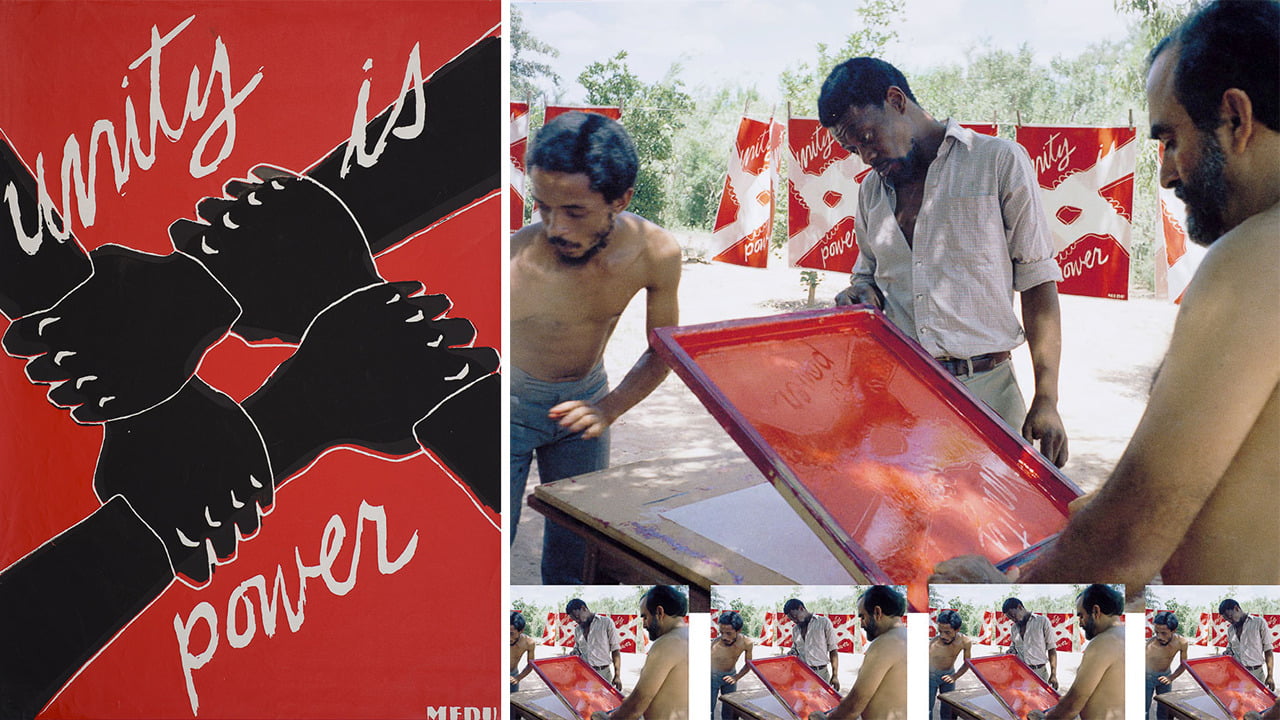Medu members Tim Williams, Wally Serote, and Sergio-Albio Gonzalez print the poster ‘Unity Is Power’ in Gaborone, Botswana, 1979. Photo: Freedom Park via Tricontinental: Institute for Social Research
January 29, 2024 by Mongane Wally Serote, Tings Chak
Anti-apartheid fighter and cultural worker Mongane Wally Serote spoke at a recent event about the centrality of art and culture to the struggle for liberation.
In 1979, during the height of the struggle against apartheid in South Africa, a group of exiled activists and artists in the neighboring country of Botswana formed the Medu Art Ensemble. A mere six years later, the organization’s future was prematurely cut short when the South African Defense Forces Special Forces conducted raids in sovereign Botswana territory, killing twelve people – two of them members of Medu Art Ensemble. During their short years of existence, this group mobilized writers, painters, designers, filmmakers, photographers, and musicians, domestically and internationally. Together, they demonstrated the power of cultural resistance, posing itself as a moral and political threat to the apartheid regime. Owing to the international mobilization and the effective use of culture as a weapon of struggle, the regime fell exactly three decades ago…



